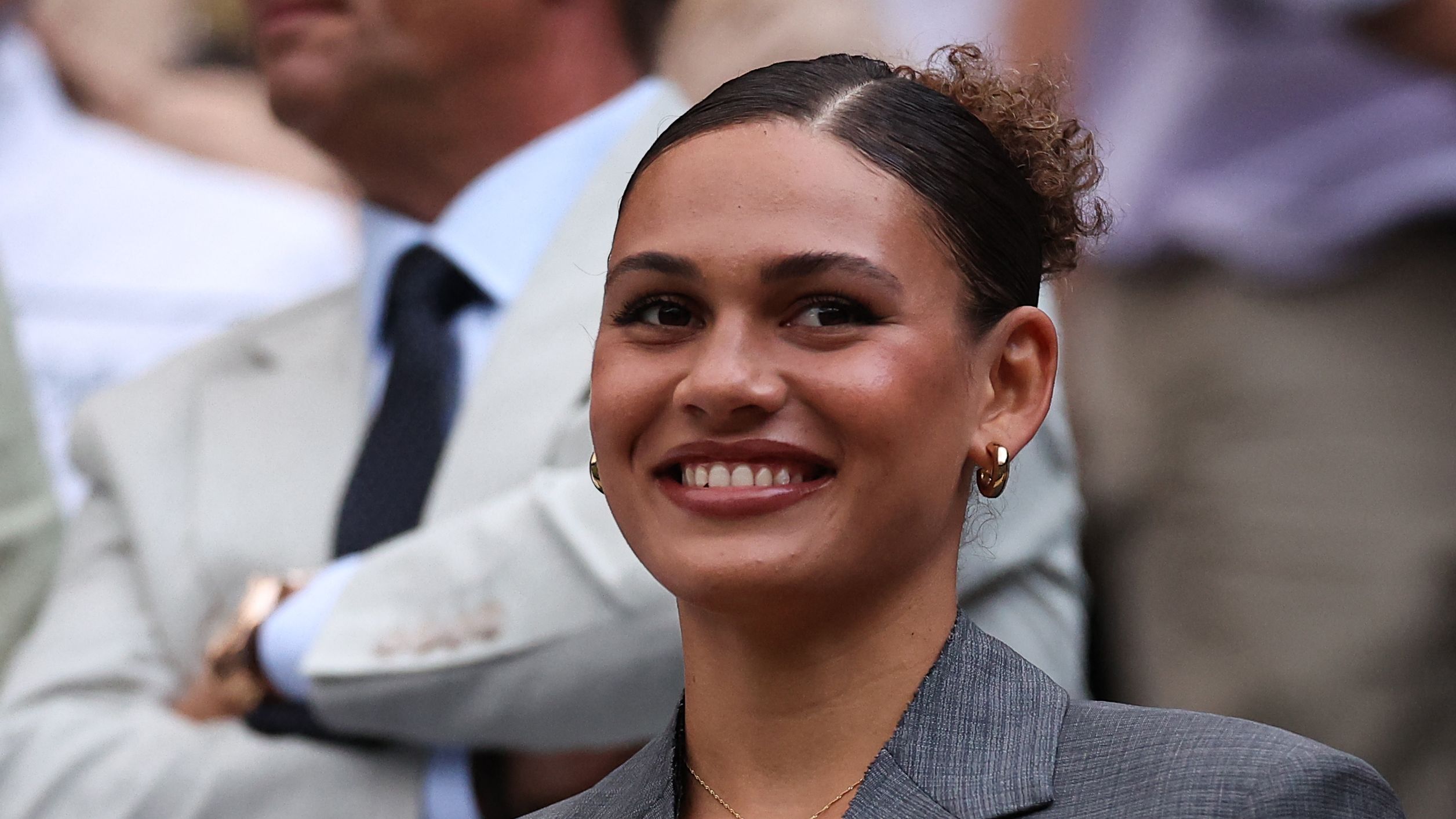Trinity Rodman Apology Issued After Name Blunder
Trinity Rodman apology headlines the fallout from a surprising on-air gaffe at Wimbledon, where a commentator repeatedly referred to the U.S. star as “Tiffany” and fixated on her father, NBA legend Dennis Rodman. The incident triggered swift social-media backlash, a formal correction from the broadcaster and fresh debate about how female athletes are framed in coverage.
Trinity Rodman apology dominates Wimbledon fallout
The Trinity Rodman apology was delivered within 24 hours of American tennis prospect Ben Shelton’s Centre Court victory. During the match, the commentator tried to highlight celebrities in the crowd but misidentified the Washington Spirit and USWNT forward sitting courtside. Viewers quickly noticed the slip, and the athlete herself posted a terse complaint on X: “My name is TRINITY. Enough with the father talk, too.”
How the mistake happened
According to the network’s post-event statement, producers fed the commentator incomplete information, believing they had spotted a different VIP guest. As the match intensified, the error snowballed: “Tiffany Rodman” was mentioned three times, while Dennis Rodman was referenced five, overshadowing Shelton’s performance and Trinity’s own résumé—World Cup veteran at 21 and NWSL Rookie of the Year.
Social-media reaction
Fans, players and journalists amplified the clip, urging respect for women’s sport and warning that misnaming athletes undermines credibility. Hashtags like #SayHerName and #RespectTrinity trended in the United States. Retired USWNT great Abby Wambach tweeted, “Our names matter—do your homework.”
Why Trinity Rodman values her own identity
For years, Trinity has balanced the marketing heft of her surname with a desire to be judged on her football. She rarely discusses her relationship with Dennis, describing it as distant and complicated. The Wimbledon error reopened old wounds, yet it also showcased her confidence. Rather than stay silent, she asserted control of the narrative, reminding audiences that her achievements—club titles, multimillion-dollar endorsements and 30 international caps—stand independently.
The estranged-father backdrop
Dennis Rodman’s larger-than-life persona long eclipsed family members. Trinity has explained that the former Chicago Bulls star was “not there much” during her upbringing. Her mother, Michelle Moyer, shouldered most parental duties while nurturing Trinity’s soccer dream. By repeatedly circling back to Dennis, the commentator inadvertently retraumatized an already sensitive topic, illustrating why basic research and empathy are essential in live broadcasts.
Official response and lessons for broadcasters
The network’s Trinity Rodman apology acknowledged the misidentification, called it “unacceptable,” and pledged refresher training on athlete profiles ahead of future events. Media scholars argue that such lapses are rarely malicious but stem from production teams short on prep time and long on celebrity tropes. Still, intent matters less than impact; misspeaking on a global stage diminishes professionalism and, in this case, reinforced a gendered double standard.
Statement from Wimbledon organizers
The All England Lawn Tennis Club issued its own brief note: “We regret any offense caused to Ms. Rodman. Wimbledon strives for accuracy and inclusivity in all communications.” While commentators operate independently, the tournament understands its reputational stake.
Trinity Rodman apology sparks broader dialogue on respect
Industry veterans say the Trinity Rodman apology could become a teachable moment. Networks are reviewing on-screen graphics, revisiting pronunciation guides and considering mandatory cultural-competency modules. The goal: ensure names, identities and backstories are handled with nuance, especially when intersecting with gender or race.
Comparisons with past missteps
This is hardly the first time broadcasters have stumbled. From mispronouncing Nigerian striker Asisat Oshoala’s surname to crediting Serena Williams’ success to her father’s coaching mid-match, patterns emerge. Critics argue a systemic bias that diminishes women’s autonomy by anchoring their value to male relatives.
The athlete’s next moves
Trinity has already shifted focus back to soccer. The Washington Spirit resume NWSL play this weekend, and national-team duty looms with Olympic qualifiers. Insiders say she will not pursue further action, satisfied that the Trinity Rodman apology met her standards. Sponsors such as Adidas and Red Bull privately praised her poised response, noting that brand worth now attaches to authenticity and empowerment.
Community support
Local clubs in D.C. plan a “Trinity Day” promotion, encouraging young players to wear her No. 2 jersey. Youth coaches intend to discuss media literacy alongside drills, highlighting how athletes can assert their identity—a subtle nod to the Wimbledon saga.
What this means for USWNT brand building
The USWNT’s commercial reach relies on star power beyond the pitch. Ensuring commentators pronounce names correctly is fundamental to growing a global audience. As next summer’s Olympics approach, leadership at U.S. Soccer views the Trinity Rodman apology as a cautionary tale: control storytelling or risk having it done poorly on your behalf.
Expert voices weigh in
Sociolinguist Dr. Carmen Perez notes, “Misnaming erases cultural capital. Athletes work hard to craft public images; a single slip can undo months of branding.” Meanwhile, veteran broadcaster Ian Darke tweeted a mea culpa of his own, admitting he once mangled Tobin Heath’s name early in his career and never forgot the embarrassment, proof that learning is possible.
Future safeguards to prevent a repeat
1. Comprehensive media kits: Teams should distribute phonetic guides and relationship context ahead of tournaments.
2. Real-time fact-checking: Production crews can assign a researcher solely to verify VIP identifications.
3. Continuous diversity training: Understanding intersections of gender, race and family dynamics reduces assumptions that propel errors.
Technology as a solution
Artificial-intelligence captioning tools, now common in live sports, could flag discrepancies between recognized public figures and announcer audio. Integrating these systems would give commentators a subtle prompt to self-correct.
Opinion: A name is more than a headline
Sports thrive on narrative, but storytelling must never eclipse respect. The Trinity Rodman apology reminds us that athletes are people first, each navigating personal histories we may only glimpse. Pronouncing a name correctly—and restraining from reductive angles—costs nothing yet enriches the viewer experience. If broadcasters can elevate accuracy to the same level as analysis, everyone wins: the athlete, the fan and the integrity of the game.
Your global gateway to nonstop football coverage:
News Goal
Share this content:

